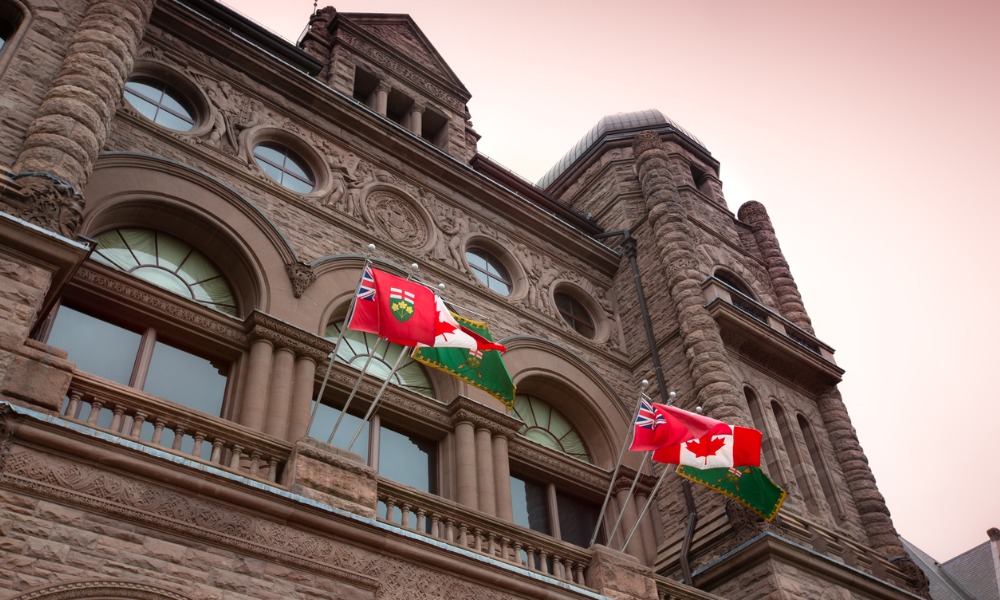
The OCA said the law does not infringe on the Charter rights of Ontario's Sinhalese community

The Ontario government has the right to create a law that recognizes the Sri Lankan state perpetrated a genocide against the Tamils, an ethnic minority group in the country, the Ontario Court of Appeal ruled Thursday.
Affirming parts of a lower court’s ruling, the appellate court said the law does not infringe on Ontario's Sinhalese community's free expression and equality rights. The Sinhalese make up the majority of Sri Lanka’s population.
However, the OCA disagreed with the lower court’s characterization of the law as “educative,” concluding instead that the law’s “dominant purpose is to affirm and commemorate the Tamil Ontarian community’s experience of the Sri Lankan Civil War and thus promote, within Ontario, the values of human rights, diversity and multiculturalism.”
“Ontario may legislate to recognize the experiences of local communities by way of commemorative days observed solely within the province,” said the unanimous decision authored by Justice J. Michal Fairburn. “This power derives from the provinces’ authority over ‘local matters’ under s. 92(16) of the Constitution Act.”
Justices Katherine van Rensburg and Benjamin Zarnett concurred.
MPP Vijay Thanigasalam introduced the Tamil Genocide Education Week Act (TGEWA) to the Ontario legislature in 2019. The proposed bill stated that the Tamil community in Ontario is one of the largest outside of Sri Lanka. Many members of that community have lost loved ones and suffer trauma from their experiences with the Sri Lankan civil war that took place between 1983 and 2009, Thanigasalam added.
The bill proposed proclaiming the week ending on May 18 as “Tamil Genocide Education Week,” during which Ontarians would be encouraged to learn about the Tamil genocide and other genocides across the world.
The legislature unanimously approved the bill, and it received royal assent in 2021. The following year, the House of Commons unanimously adopted a motion recognizing “the genocide of Tamils in Sri Lanka” and May 18 as Tamil Genocide Remembrance Day.
Two separate applications subsequently challenged the law. The first was filed by the Sri Lankan Canadian Action Coalition and Sri Lanka Canada Association of Brampton, community organizations that advocate for Sinhalese Ontarians. The second application was brought by Neville Hewage, a Sinhalese adjunct professor and research fellow at the International Centre for Interdisciplinary Research in Law at Laurentian University.
Both applications alleged that the TGEWA was constitutionally invalid and that enacting it was beyond the scope of the Ontario government’s powers. Hewage alleged that the law infringed on the plaintiffs’ rights to free expression and equality under the Charter of Rights and Freedoms.
A lower court judge heard the two applications together, concluding that the Ontario government had the right to legislate the TGEWA and that the law did not breach the plaintiffs’ Charter rights.
The appeals court largely agreed with the lower court’s conclusions. Because “supporting an Ontarian community by way of a commemorative week observed solely within Ontario is a matter ‘of a merely local or private nature in the province,’” the TGEWA is a “valid exercise of Ontario’s powers under s. 92(16) of the Constitution Act, 1867,” Fairburn wrote.
The court also rejected the community organizations’ argument that only Parliament has the authority to legislate about genocide since genocide is a matter of national concern. The court added that the organizations’ allegation that a “false declaration of genocide” against a state may be justiciable under the Genocide Convention – of which Canada is a signatory – is “a red herring.”
As with the lower court, the appeals court rejected the plaintiffs’ allegation that the TGEWA restricted Sinhalese Ontarians’ freedom of expression. The court additionally rejected Hewage’s claim that the law discriminated against Sinhala-Buddhists.
“The impugned portions of the TGEWA’s preamble state that the Sri Lankan government’s allegedly genocidal policies were ‘Sinhala-Buddhist centric,’ not that Sinhala-Buddhists are, as a racial group, collectively responsible for them,” Fairburn wrote. “Likewise, claiming that the Sri Lankan state ‘orchestrated’ a genocide does not imply that Sinhala-Buddhists are collectively responsible for ‘executing’ the alleged genocide.”
The TGEWA does not have a discriminatory impact because it does not create any rights or liabilities that affect Sinhala-Buddhists, Fairburn said, adding that the law only encourages public reflection on a conflict.
However, the court disagreed with the application judge’s finding that the law was “educative” in substance.
“The word ‘education’ may appear many times in the legislative record, but that alone does not make the pith and substance of the TGEWA educational,” Fairburn wrote. “We accept that the TGEWA has spurred certain educational initiatives. The TGEWA represents an act of affirmation towards a local community that has suffered historical marginalization. Any education that it spurs is but a means to this further end.”
A spokesperson for the Ontario Ministry of the Attorney General told Law Times on Friday that the ministry could not comment on the case during the appeal period.
Counsel for the other parties did not respond to requests for comment.